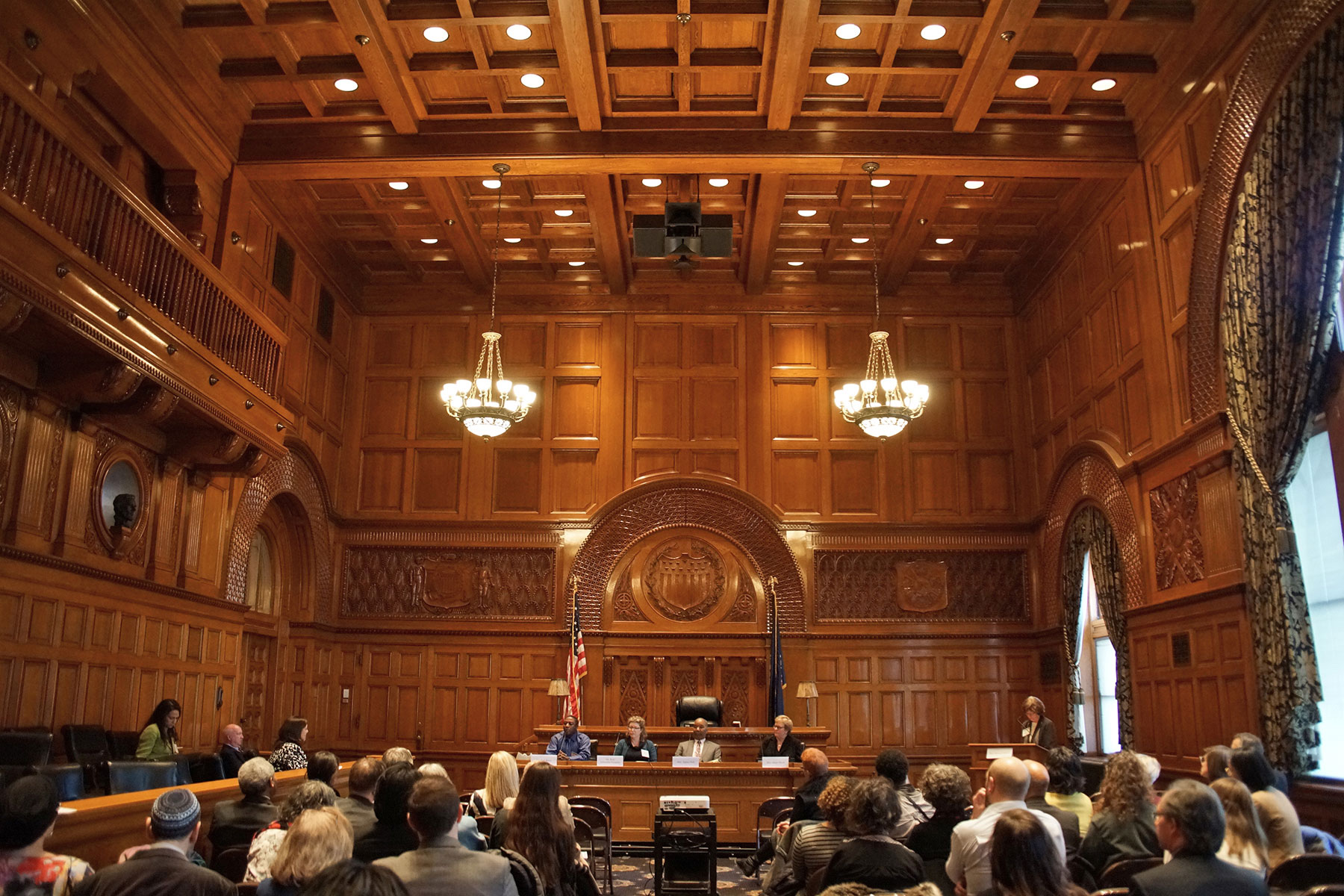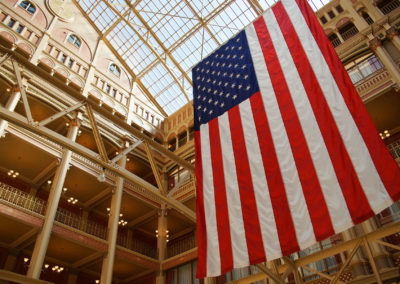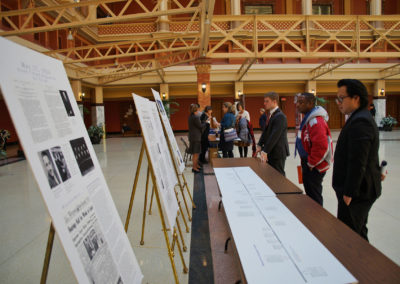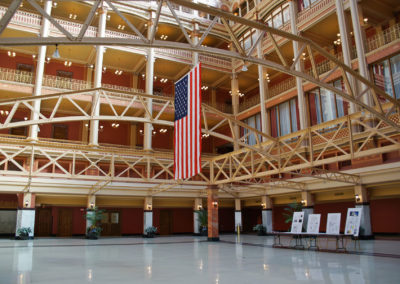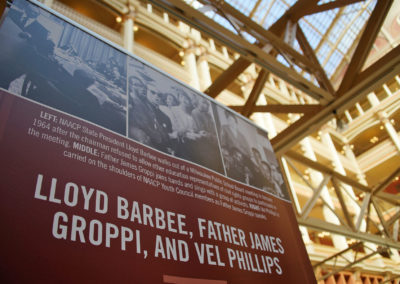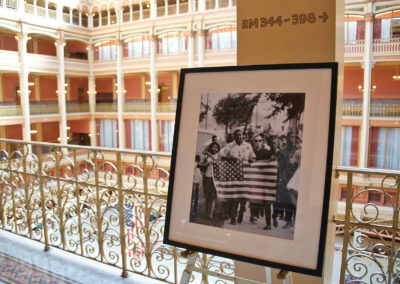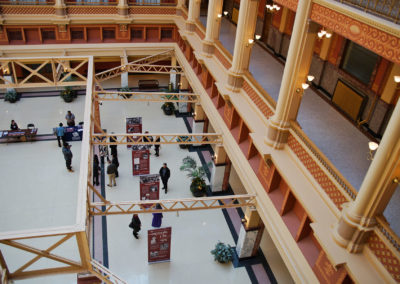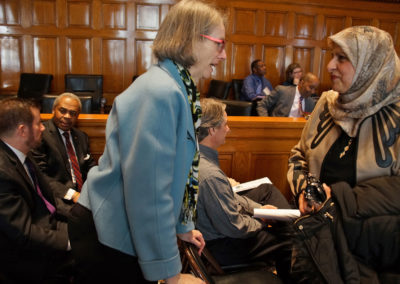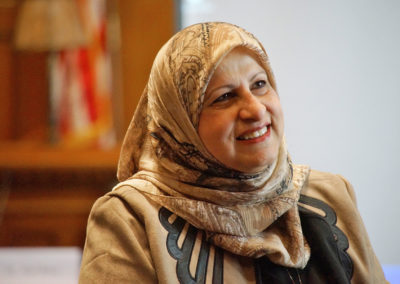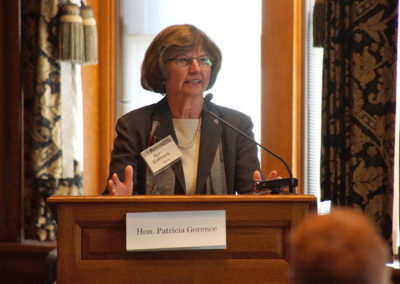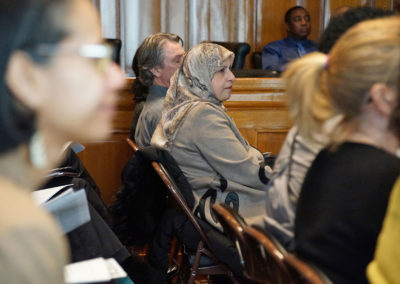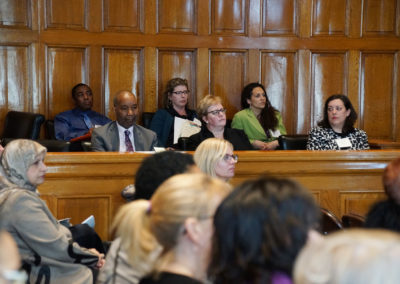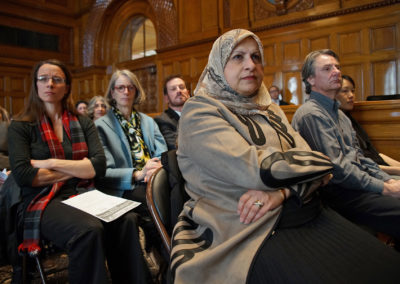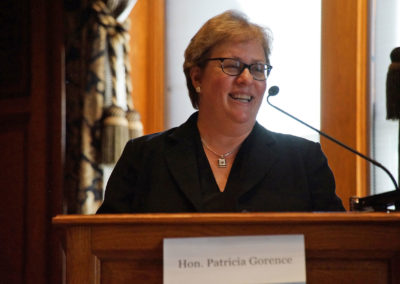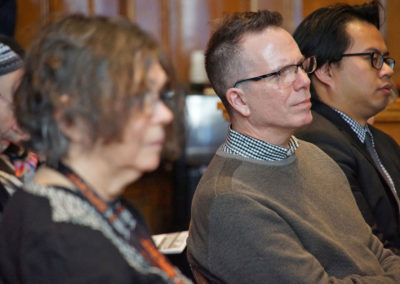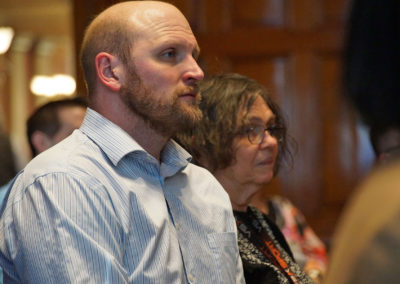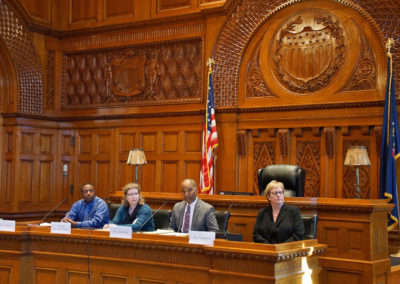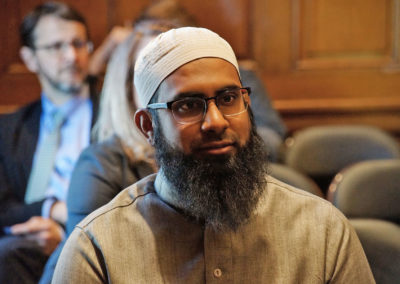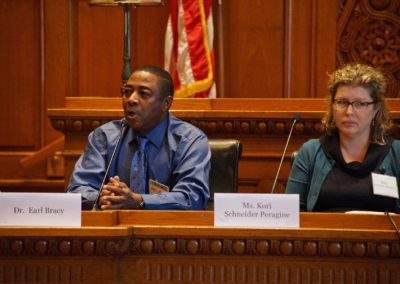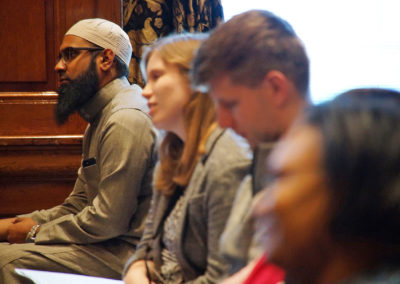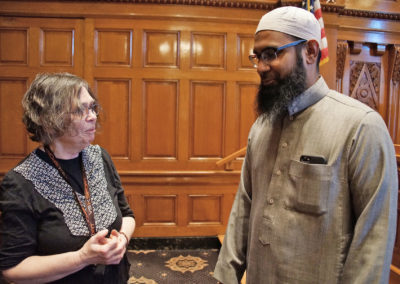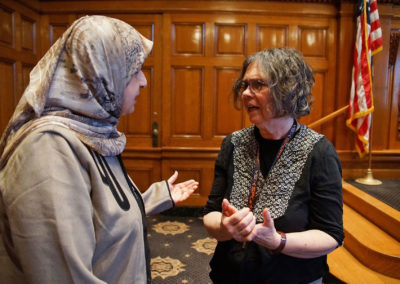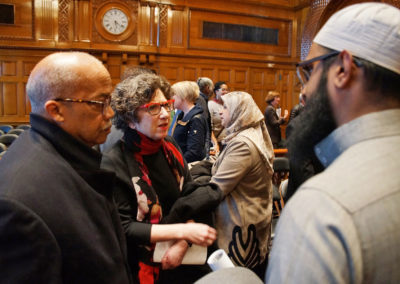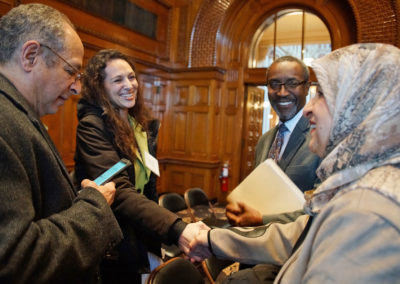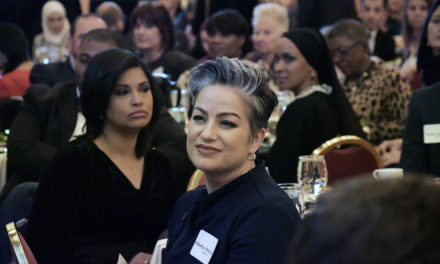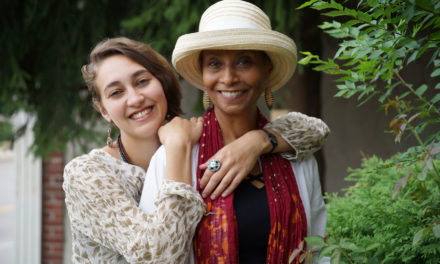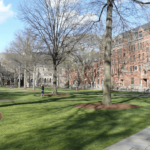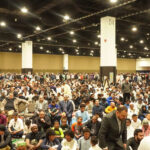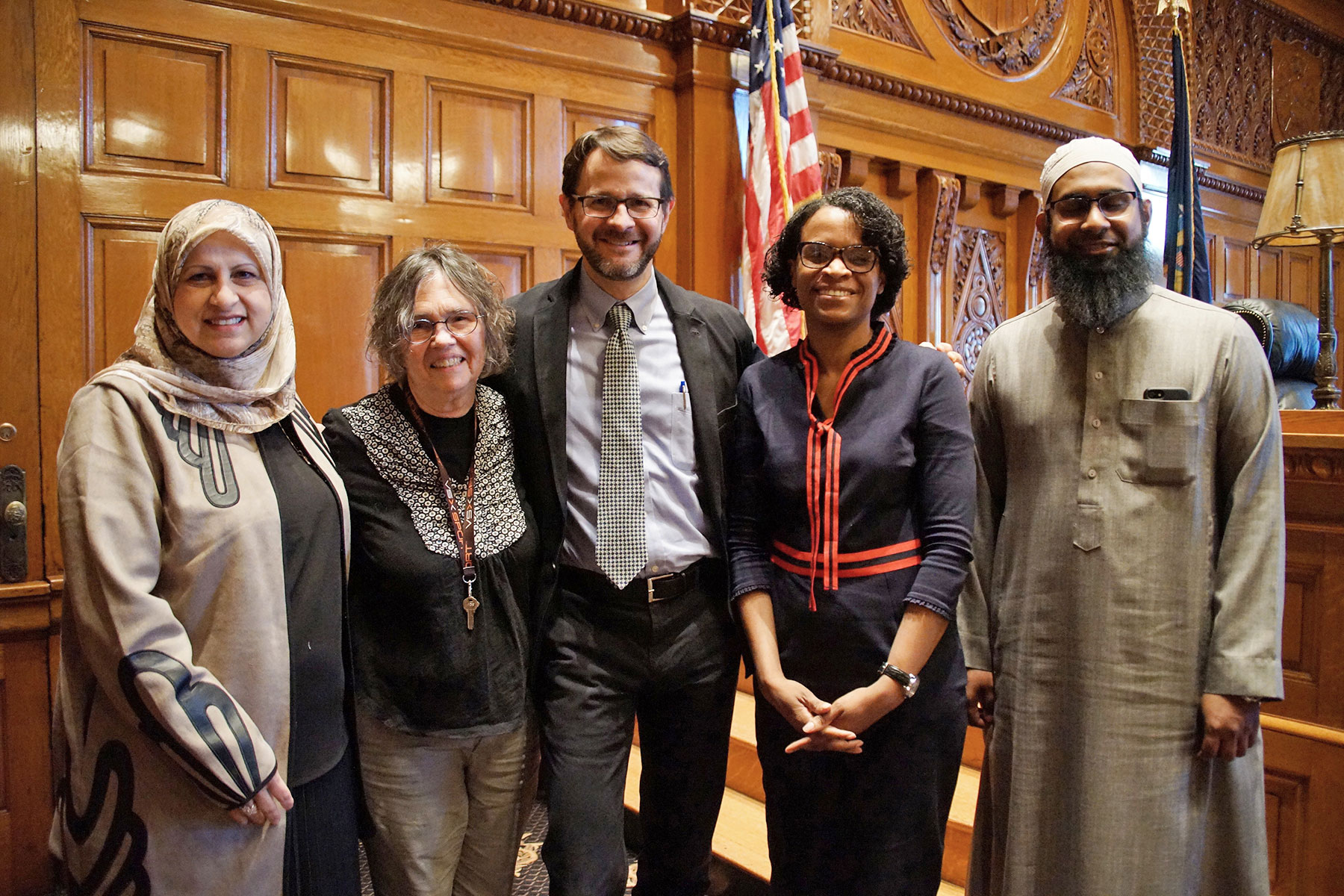
The Eastern District of Wisconsin Bar Association and the Wisconsin Association of African-American Lawyers commemorated the 50th anniversary of the fair housing marches and the passage of the Fair Housing Act on March 14 at the U.S. Courthouse and Federal Office Building in Milwaukee.
Finding the right home has long been part of the American dream. That dream is legally protected from discrimination or harassment based on religion. The Civil Rights Division’s Housing and Civil Enforcement Section implements the provisions of the Fair Housing Act, which prohibits housing discrimination on the basis of race, color, religion, sex, national origin, disability, or familial status.
These housing protections apply to discrimination in the sale or rental of housing, and also apply to the “terms and conditions” of the sale or rental of housing. For example, if people are permitted to put decorations on their apartment doors, religious individuals should be able to put religious items or decorations on their doors. Similarly, when condominiums or apartments have a common room that can be reserved by residents for private activities like parties or book studies, residents seeking to hold a Bible study or Islamic prayer activity may not be discriminated against.
In Wisconsin, and across the nation, it is illegal to treat home seekers differently because of their religion. Religion includes both the practice and non-practice of religion, such as atheism and agnosticism, and even those religions that are not mainstream.
The law also prohibits discrimination based on an individual’s perceived religion. Even if a housing provider mistakenly believes people are Muslim, it is still illegal to direct anti-Muslim slurs at the family.
A number of Muslim refugees and immigrants to Wisconsin have experienced difficulty in finding housing when the landlords realize that they are Muslims. Other property owners have delayed making important repairs to dwellings in an effort to push out current Muslim tenants.
Language is often a barrier that prevents these vulnerable individuals from speaking up for their legal rights. As more tenants become aware of the laws that safeguard their rights, the more remedies can be applied to help alleviate these prejudicial issues.
Religious discrimination extends to religious practices and customs. Muslims cannot be treated differently because they wear religious garb, such as a headscarf or turban, or because of participation in particular rituals.
Discrimination due to religious beliefs takes many forms, but most often it looks like:
- Asking renters and homeowners about their religion
- Refusing to rent to women who wear hijabs, or Sikhs who wear turbans
- Making rude comments about religious practices or dress
- Calling Muslims terrorists and telling them that they are not welcome
- Allowing some tenants to put up Christmas lights, but telling others they cannot put up decorations for their religious holidays
- Telling tenants that they cannot have alters in their units
- Housing providers putting up non-secular decorations, like crucifixes, in common areas
- Proselytizing by housing providers or other tenants
- Being told that a family will not like a neighborhood because there is not a mosque, church, or synagogue nearby
- Not being allowed to use community rooms for religious purposes, but being allowed to use them for gatherings, such as parties
Participants of the anniversary gathering included the Honorable Patricia J Gorence, U.S. District Court for the Eastern District of Wisconsin; Earl Bracy, Psy.D., Bracy Psychological Services and 1967-68 Fair Housing Marcher; James H. Hall Jr., Esq., Hall, Burce & Olson SC and Former President of the NAACP Milwaukee Chapter; Diane L. Houk, Esq., Emery Celli Brinckerhoff & Abady LLP and Formerly of the Civil Rights Division of the U.S. Department of Justice – Housing & Civil Enforcement Section; and Kori Schneider Peragine, Metropolitan Milwaukee Fair Housing Council.
The program highlighted the events that led to the fair housing marches and eventually the passage of the Fair Housing Act, with speakers and panelists addressing the fair housing issues on a local and national level.
Federal Fair Housing Act Protected Classes
Federal law makes it illegal to discriminate in housing because of:
Wisconsin Open Housing Law Protected Classes
State law includes all federal protections, plus the following additional classes:
Local Fair Housing Ordinances Protected Classes
The City of Milwaukee and Milwaukee County have these additional protected classes:
- Race – A person’s race or the race of persons with whom one associates.
- Color – A person’s skin color.
- Sex – A person’s sex, including sexual harassment or intimidation.
- National Origin – The country of one’s birth and/or the nationality of one’s ancestors.
- Religion – A person’s religious beliefs or denominational affiliation.
- Disability/Handicap – A physical or mental impairment that substantially limits one or more major life activities.
- Family/Familial Status – Household composition, including the presence of children.
Age – Persons 18 years of age and older. Ancestry – The country of one’s birth and/or the nationality of one’s ancestors.
Marital Status – Married, single, divorced, widowed or separated.
Lawful Source of Income – A person’s legal means of income, including such subsidized forms as Social Security, Food Stamps, Unemployment Compensation, etc.
Sexual Orientation – Heterosexuality, homosexuality and bisexuality.
Domestic Abuse, Sexual Assault and Stalking Victims – Persons who have been or are victims of domestic abuse, sexual assault or stalking.
Gender Identity or Expression – A gender identity, appearance, expression, or behavior of an individual, regardless of the individual’s legal or biological sex at birth.
Military Service – Past or present membership in the military (City of Milwaukee only).
Domestic Partnership – Having status in a domestic partnership (Milwaukee County only).
© Photo
Wisconsin Muslim Journal
